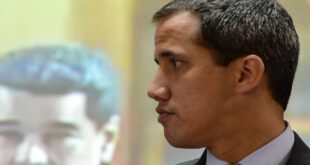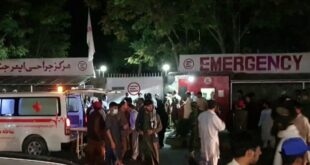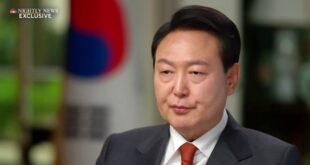[ad_1]
There was a greater need for medical care, but services for Indigenous peoples deteriorated under Bolsonaro, according to Adriana Athila, an anthropologist who has studied public healthcare for the Yanomami, which is provided by one of the special districts designed for the needs of Indigenous communities. There have also been reports of miners taking control of health facilities and airstrips in Yanomami territory for their own use. Local leaders themselves have been sounding the alarm for years.
“The miners are destroying our rivers, our forest and our children. Our air is no longer pure, our game is disappearing and our people are crying out for clean water,” Júnior Hekurari Yanomami, president of the Yanomami local health council, wrote on Twitter last March. “We want to live, we want our peace back and our territory.”
The recent influx of miners severely exacerbated the disruption of traditional Yanomami life that took place over the prior two decades. That was caused by the introduction of social welfare programs that forced people to make weeks-long trips to collect their benefits in cities, where they often remain for extended periods in squalid conditions, as well as the establishment of non-Indigenous institutions, such as military bases, medical posts, and religious missions, which transformed some temporary villages into permanent settlements, depleting hunting and soil resources.
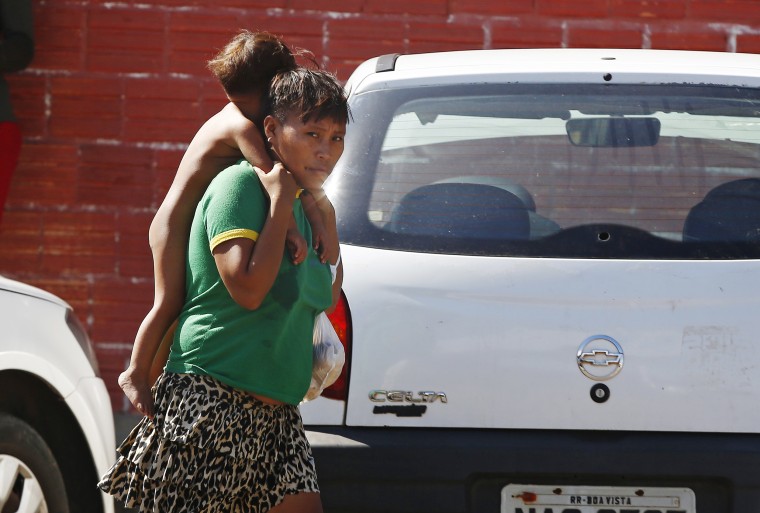
What was Bolsonaro’s role?
As a young lawmaker in the 1990s, Bolsonaro fiercely opposed the creation of the Yanomami territory. More recently, he openly championed mining in Indigenous lands and the integration of native peoples into modern society. Environmentalists, activists and the vast majority of Indigenous groups slammed his efforts and warned of devastating impacts. He pressured Congress for an emergency vote on the bill his mining and justice ministries drafted and presented in 2020 to regulate the mining of Indigenous lands, but lawmakers demurred. Even large mining companies repudiated the proposal.
Wildcat gold miners, for their part, were undeterred, “because they knew the government would turn a blind eye,” Senra said.
Hekurari on Saturday also accused Bolsonaro’s administration of ignoring some 50 letters pleading for help. That is in part why some, including President Lula, have accused Bolsonaro of genocide.
Bolsonaro called such claims “another left-wing farce” on his Telegram channel Sunday, and said Indigenous healthcare was one of the government’s priorities, citing implementation of a sanitary protocol for entry into their territories during the COVID-19 pandemic. He said that during his administration the health ministry provided more than 53 million basic-care services to Indigenous peoples.
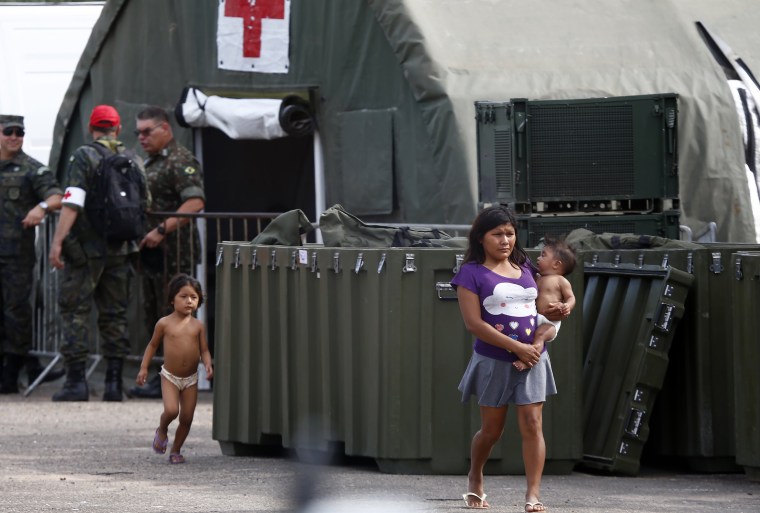
How has Lula responded?
After defeating Bolsonaro in the October election, Lula took power Jan. 1. The change created an expectation that the burgeoning crisis would finally receive attention, said Senra, given the sharp reversal for Amazon policy Lula had outlined on the campaign trail. Indeed, Lula dispatched a team to Yanomami territory last week and on Saturday traveled to Boa Vista, the nearby capital of Roraima, where many Yanomami people have been medevaced for treatment.
Following Lula’s declaration of a medical emergency, the army began flying food kits into Yanomami territory and set up a field hospital in Boa Vista, while the health ministry put out a nationwide call for medical professionals to volunteer.
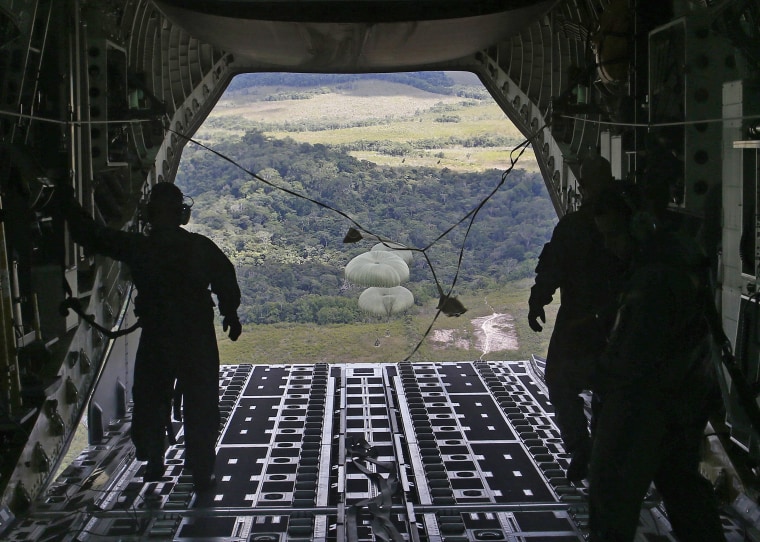
Marcos Pelligrini, a former doctor within Yanomami territory and professor of collective health at the Federal University of Roraima in Boa Vista, said that he felt relief upon seeing army helicopters transporting food kits.
“It’s a moment of hope,” he said.
But going forward, the miners still must be removed from the region by the Federal Police and environment regulator Ibama, with help from the defense ministry, Minister for Indigenous Peoples Sonia Guajajara told newspaper Estado de S. Paulo.
 Latest Breaking News Online News Portal
Latest Breaking News Online News Portal


